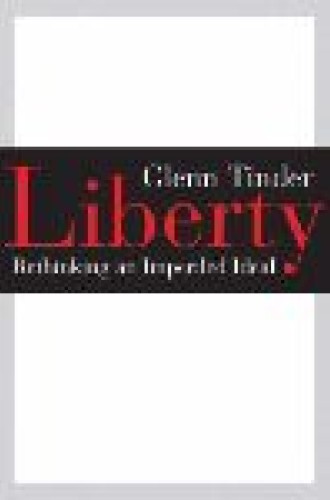Liberty as a Christian value
These are difficult times for defenders of liberty. With the ironically named Patriot Act (whose name is an acronym for Providing Appropriate Tools Required to Intercept and Obstruct Terrorism), law enforcement agencies have gained greatly increased powers to search telephone and e-mail communications without a warrant. A new term, “domestic terrorism,” has entered the political lexicon, and it has brought with it an alleged justification for the government to acquire the medical, financial and other records of American citizens, often without their knowledge. President Bush, while vowing that the United States does not condone torture, has declared that waterboarding—an “interrogation technique” in which practitioners strap a blindfolded person to a board and pour water over the person’s face so water flows into the mouth and nose, the gag reflex kicks in and the person believes death by drowning is imminent—is “within the law.” In March the president vetoed a measure passed by Congress that would have outlawed CIA use of such interrogation practices.
A once-leading candidate for the Republican presidential nomination, Mike Huckabee, has declared that the Constitution is not as sacred as some Americans have been led to believe: “What we need to do is to amend the Constitution so it’s in God’s standards rather than try to change God’s standards so it lines up with some contemporary view.” Clearly, liberty is not as safe as it used to be.
To students of history, the names may have changed, but the faces are eerily familiar. From the fall of Rome to World War II to today, individual liberties have repeatedly come under fire in times of political fear. The Augustine who wrote, in the comparatively stable year of 392, “I do not propose to compel men to embrace the communion of any party, but desire the truth to be made known to persons who, in their search for it, are free from disquieting apprehensions” seems to have little in common with the Augustine of 417, who wrote amid the social chaos after the fall of Rome: “There is a persecution of unrighteousness, which the impious inflict upon the Church of Christ; and there is a righteous persecution, which the Church of Christ inflicts upon the impious.” The Franklin Roosevelt who ran for president in the 1930s under the banner of protections for the poor and the oppressed seems a far cry from the Roosevelt of 1942 who, in the aftermath of Pearl Harbor, issued Executive Order 9066, under which some 120,000 people, most of them of Japanese descent and more than half of them citizens, were placed in internment camps.
The attacks of 9/11 brought a wave of national fear unlike any felt by Americans since the onset of World War II, and many people began to think that the loss of some personal liberties might be a small price to pay for public security.
In Liberty: Rethinking an Imperiled Ideal, Glenn Tinder takes this concern seriously. Professor emeritus of political science at the University of Massachusetts–Boston, Tinder is a self-described “pessimistic liberal”: he recognizes both the dangers of individual liberties and the greater risks that follow from the failure to protect them. Writing in the form of a philosophical essay—there are no footnotes and few quotations—Tinder uncovers a deep historical ambivalence toward liberty: “In spite of our tendency to recount history as the story of liberty,” he contends, we should recognize “how little enthusiasm there has been in the past for liberty.”
Part of the reason for this ambivalence is that liberty does indeed “enhance the opportunities for creatures in which there is much evil to spread evil into the world around them.” Liberty does make it easier for the unjust to attack the innocent. But liberty also has a “moral purpose”—a role in allowing humans to create goods, both personal and collective, that would be unthinkable in a totalitarian system. One of the great challenges for contemporary society is to determine how to strike the correct balance between liberty’s risks and promises.
What makes Tinder’s discussion so refreshing and timely is not merely his resistance to simplistic answers, but his willingness to explore these supremely philosophical issues from an explicitly Christian point of view. Tinder believes that arguments about liberty take on new resonance when they are voiced from within the Christian context. While the dignity of the individual can be grounded in humanistic principles, for example, those principles do not provide its best defense. For Christians, the dignity of an individual reflects the creative act of a God who made humanity in God’s own image.
If Christ is the Logos and humans are given reason by God, then an unreasoning Christianity is a self-contradiction. Christians are by nature not dogmatic but rather “Socratic,” Tinder tells us. They fulfill their religious character through free engagement with and respect for others. “A strong faith would not recoil from dialogue” but would promote it. Thus individual liberty is an essential component of the Christian life. Protecting individual liberties is a Christian value.
The irony here, Tinder explains, is that the positive goods of the Christian life are perhaps best realized through the Christian’s support of negative liberty. Negative liberty is freedom from constraint—from limitations imposed by the state, society, corporations and, yes, religion. It is the freedom to do what one wishes to do, and this negative liberty is reflected in the political and legal apparatus through which individuals gain license to worship freely as well as to engage in all kinds of “non-Christian” acts: premarital sex, substance abuse, adultery.
Perhaps because of this latter implication, traditional Christians have often felt ill at ease about supporting negative liberty. Instead, they politically advocate positive liberty—the freedom to do certain specific things. Classic Christian figures such as Augustine taught that to make wrong choices—to practice anything from fornication to heresy—is not to act freely at all but rather to be a “slave to sin.” The truly free individual is the one who embraces God, attends church and rejects sin. Mike Huckabee is a contemporary heir to Augustine; he holds that the woman who is “free” to seek an abortion is not free at all and that the government needs to ensure that she chooses the one truly liberating path by bringing her pregnancy to term.
But what, Tinder asks, is lost in the process? Whether we agree with the woman’s choice or not, what kind of society do we create by restricting such liberties as her right to make that choice? We may take comfort in the illusion of control, in the idea that others (and perhaps we ourselves) will not be able to do what we most fear. But “to enter fully in the life of liberty is to forswear all worldly security and certainty,” Tinder writes. It is to respect the fact that as creations of God, all people have choices. While these choices are not limitless, they are numerous, and they shape the world in which we live. To enter the life of liberty is to recognize that for all our laws, our courts and our armies, we are never truly in control. This is the challenge not merely of liberty; it is the challenge of Christianity.






